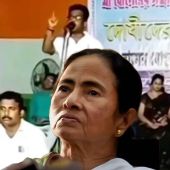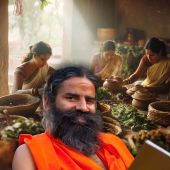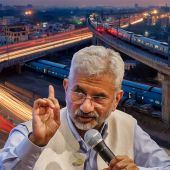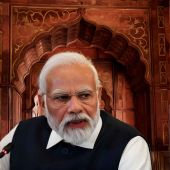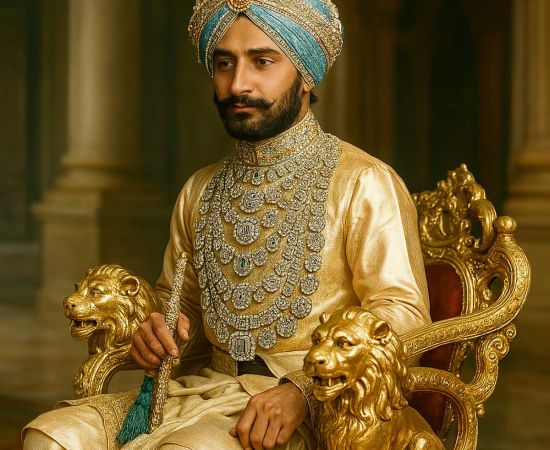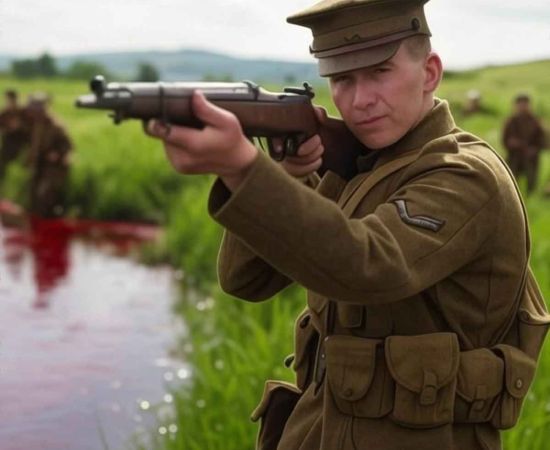If only India’s partition chilling wound was not enough, Gandhi did his last protest again only to blackmail India into giving 55 crores to Pakistan, dragged Hindu, Sikh refugees seeking shelter in mosques to die in cold: And we call him Mahatma, not for

Gandhi’s last protest is what the year 1947-48 should be remembered for, alongside India’s partition. No doubt the year is remembered for India’s so-called independence. It is also the same year when the so-called visionary leader of the so-called newborn nation envisioned a ‘Tryst with destiny’ in his speech at the stroke of the midnight hour even though countless of his fellow countrymen were being slaughtered for their religion.
The year is also remembered for Mahatma Gandhi’s assassination that took place on 30th January 1948 in the evening at Delhi. But seldom do we talk about the horrifying massacre of lakhs of people that this ancient civilization witnessed in the same years.
Gandhi’s assassination has been marked as the so-called first act of terrorism in independent India but hardly anyone talks of the terrors faced by Chitpavan Brahmins in Maharashtra immediately after Gandhi’s murder. Maharashtrian Brahmins were killed in large numbers, their slaughter justified as ‘revenge’ for Gandhi’s murder, their houses were burnt and they were made to leave the villages and get refuge in the crowds of cities which were already burning with the Hindu-Muslim riots that had taken place due to partition.
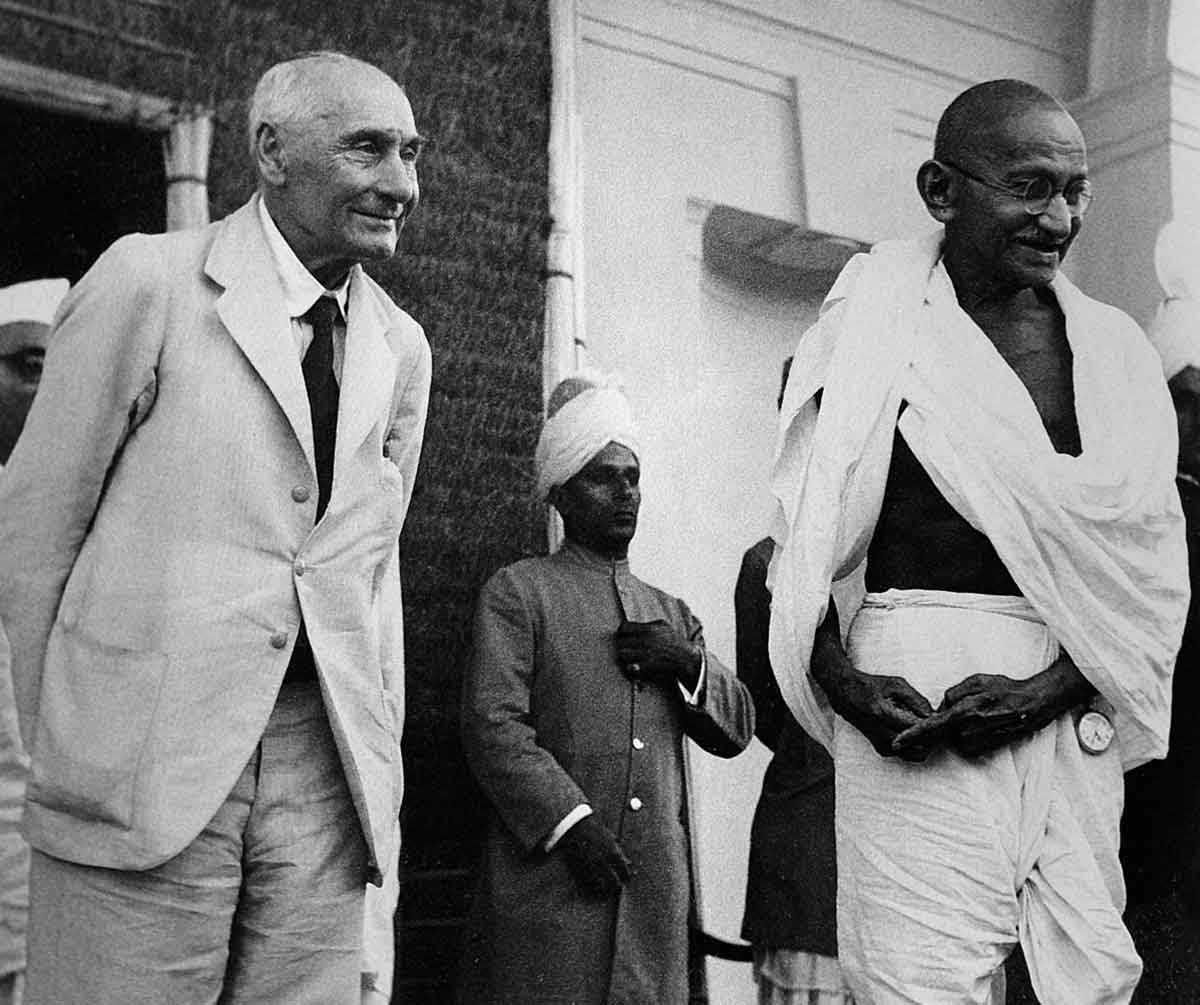 |
Mahatma Gandhi’s last fast in January 1948: Know what were his demands
Throughout his tenure of leading the freedom movement, Gandhi had been very confidently using a lethal weapon called ‘fast’. Interestingly, the weapon was rather lethal in acting against India’s best interests. Besides, it was very useful even to persuade somebody as practical as Babasaheb Ambedkar. Gandhi had observed fasts multiple times before for the so-called Hindu-Muslim unity. In January 1948, he did it again.
During the partition, Gandhi was in Bengal. He reached Delhi in September 9, 1947, and termed the Indian capital city as ‘city of corpses’. In January 1948, when Pakistan was causing brutal attacks in Jammu and Kashmir, Gandhi started getting worried for Pakistan and the Muslims of Delhi.
Gandhi said that Muslims are not safe in Delhi. Meeting Maulana Azad, he laid down some conditions to break his fast. He demanded that the annual fair (Urs) should be organized peacefully at Khwaja Bakhtiyar Dargah of Mehrauli. He also demanded that the 100 mosques in Delhi that have been converted into refugee camps – be brought back to their former status.
Apart from this, he had other demands too. Arrangements should be made for the free movement of Muslims in Old Delhi. Non-Muslims should not object to Muslims returning from Pakistan. Muslims should travel fearlessly in trains. Economic boycott of Muslims should not be done. And Hindu refugees should be settled in the territory of Muslims only if they get permission from Muslims.
According to historians like Ramachandra Guha, Mahatma Gandhi also ‘knew’ that the capital of the country is defined by the Muslims, and the artifacts, literature, music, and even medical science there has the impression of Muslims. He reached Delhi in September 1947 and preached to Hindus that they should allow Muslims to live as equal citizens, not as slaves. He talked about going to Pakistan and sacrificing his life there for Hindus and Sikhs, but it did not happen.
Mahatma Gandhi used to ask Hindus, “Will you destroy 4 crores of Muslims?” Strangely, while addressing a Congress program held in November 1947, Mahatma Gandhi said that neither India belongs to Hindus only nor Pakistan belongs to Muslims only. This was a strange contradiction to reality because the partition of India had happened on the basis of religion and Pakistan was born on the basis of Islam itself, declaring it as a country of Muslims. He claimed that Muslim shops have been removed from Chandni Chowk and 130 mosques have been vandalized in Delhi. On January 12, 1948, Mahatma Gandhi announced a fast unto death from the next day.
Mahatma Gandhi was also annoyed that why India was no longer giving Pakistan ‘its share of the money.’ Mahatma Gandhi started his fast unto death on 13 January 1948 at 11:15 which was the last fast of his life. Victim Hindus were also protesting outside. Slogans were being raised against Mahatma Gandhi. It was announced on 15 January that Mahatma Gandhi’s fast unto death is for the minorities of both India and Pakistan.
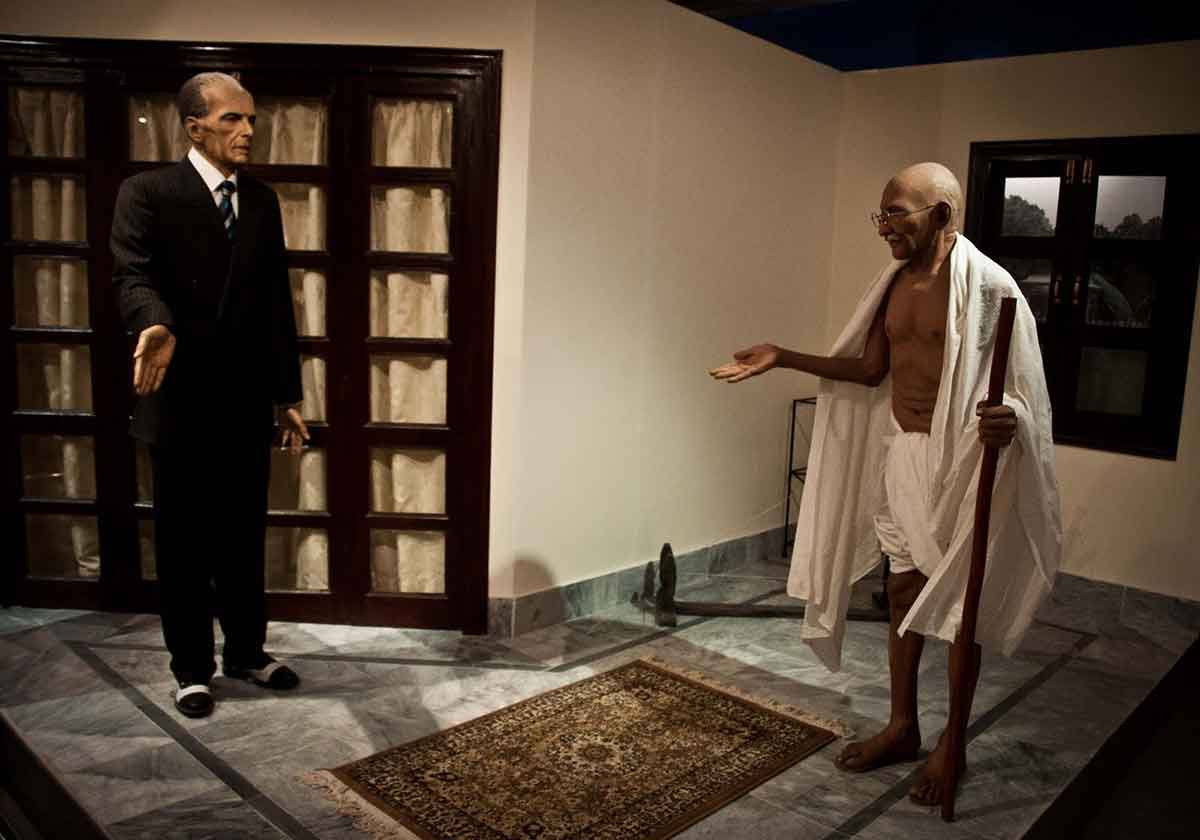 |
Refugee Hindus were shivering on the road, but Gandhi was concerned about Muslims
Gandhi’s emotional blackmail worked and the then Government of India agreed to give Rs 55 crores to Pakistan. Mahatma Gandhi ended his fast on 18 January 1948. Before that, after meeting Dr Rajendra Prasad, leaders of all religions had promised that nothing would happen to Muslims in Delhi. The Nehru government somehow wanted to end this fast, and it succeeded in the purpose. Mahatma Gandhi said that this was his biggest fast. Before that, he had also fasted against ‘violence in the name of nationalism’.
Nathuram Godse’s brother Gopal Godse in his book writes that the refugees Gandhi was talking about removing from mosques were all Hindus. Gopal has told that he saw the Hindus coming out, they were shivering due to cold and rains. They went outside ‘Birla House’ and raised slogans, but Gandhi did not listen to them. Gopal Godse was angry that why did Mahatma Gandhi not put any condition for the Pakistan government in his fast?
French writer Dominique Lapierre has mentioned in his book ‘Freedom at Midnight‘, that during the fast, Mahatma Gandhi was also engaged in making arrangements to go to Pakistan. For this, he was taking the help of Jahangir Patel, the cotton broker of Mumbai. But Jinnah refused, expressing his disbelief in Gandhi. Jinnah had stated that he was made to quit Congress because of Gandhi. However, after the announcement of getting 55 crore rupees, Jinnah agreed and Gandhi made up his mind to go to Pakistan, walking.
Lapierre writes how Mahatma Gandhi, while welcoming the Mountbatten couple who came to see him during the fast, said, “Well, when I sit to fast, the mountain comes to Muhammad.” Industrialist Ghanshyam Das Birla had also tried to explain to Gandhi that the consequences of transferring money to Pakistan would not be good because belligerent Pakistan will use that money to buy weapons against India. But Gandhi did not budge.
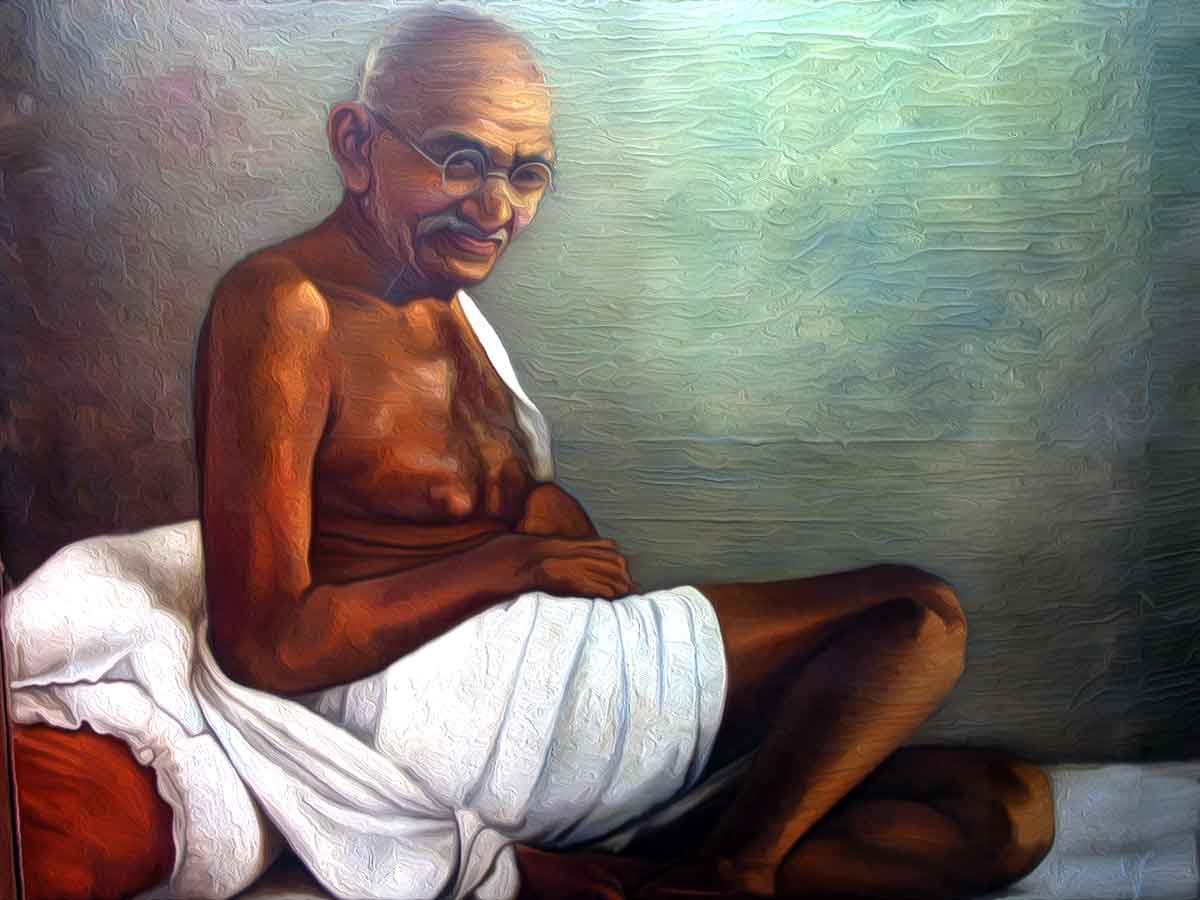 |
What were the 55 crores rupees?
The partition of India had also resulted in the partition of the Reserve Bank. At the time of partition, the vaults of RBI had Rs 375 crores, and after deliberations, it was decided that India will give Rs 75 crores to Pakistan for ‘assets and liabilities’. Rs 20 crores were already given and Rs 55 crores were pending. But soon after partition, Pakistan carried out brutal attacks and massacres in Jammu and Kashmir and occupied Gilgit and Baltistan. Though Nehru and many Indian leaders at that time were against giving those 55 crores to Pakistan immediately, Gandhi’s fast forced the government of India to hand over the money despite Pakistan’s bloody attacks, the slaughter of Hindus, and Sikhs and the occupation of Gilgit Baltistan.
Pakistan’s invasion of Kashmir in October 1947
Soon after the independence, the Pakistani Army prepared a plan called ‘Operation Gulmarg‘ and put it into action. According to the plan, 20 Lashkars (tribal militias), each consisting of 1000 Pashtun tribals, were to recruited from various Pashtun tribes, and armed at the brigade headquarters at Bannu, Wanna, Peshawar, Kohat, Thall, and Nowshera by the first week of September. The armed Lashkars were expected to reach their launching point in Abbottabad on October 18, and subsequently cross into Jammu and Kashmir on October 22, 1947. The primary objective of the Operation was to capture Srinagar by October 26, 1947.
The weeks of planning and illicit maneuverings under Operation Gulmarg culminated into the invasion of Jammu and Kashmir which marked the commencement of the events that led to the first Indo-Pak war. In the wee hours of October 22, 1947, scores of Pakistani Pashtun tribal militias, in connivance with the Pakistani state and army surreptitiously crossed the border from Garhi Habibullah into Jammu and Kashmir and attacked the town of Muzaffarabad.
After wreaking havoc in Muzaffarabad, the Pashtuns marched towards the prosperous town of Baramulla, even though the path to Srinagar was clear. Here too, the Pashtuns killed innumerable men and women, looted houses, and then set them on fire. Out of the 14,000 population at the time, less than two thousand had remained.
References:
 Support Us
Support Us
Satyagraha was born from the heart of our land, with an undying aim to unveil the true essence of Bharat. It seeks to illuminate the hidden tales of our valiant freedom fighters and the rich chronicles that haven't yet sung their complete melody in the mainstream.
While platforms like NDTV and 'The Wire' effortlessly garner funds under the banner of safeguarding democracy, we at Satyagraha walk a different path. Our strength and resonance come from you. In this journey to weave a stronger Bharat, every little contribution amplifies our voice. Let's come together, contribute as you can, and champion the true spirit of our nation.
 |  |  |
| ICICI Bank of Satyaagrah | Razorpay Bank of Satyaagrah | PayPal Bank of Satyaagrah - For International Payments |
If all above doesn't work, then try the LINK below:
Please share the article on other platforms
DISCLAIMER: The author is solely responsible for the views expressed in this article. The author carries the responsibility for citing and/or licensing of images utilized within the text. The website also frequently uses non-commercial images for representational purposes only in line with the article. We are not responsible for the authenticity of such images. If some images have a copyright issue, we request the person/entity to contact us at This email address is being protected from spambots. You need JavaScript enabled to view it. and we will take the necessary actions to resolve the issue.
Related Articles
- A sudden surge of Land Jihad in Gujrat is forcing Hindus and Jains to leave their homes resulting in localities to shift demography: A tale of two cities, Gopipura in Surat and Soni Falia in Bharuch
- Tales of Fraud, funding, forced religious conversion and insulting Hindu gods and goddesses after brainwashing: How tribals were converted to Islam in Gujrat - “Aapka paigam London pahucha diya hai, achha kaam ho raha hai"
- Dewan Bahadur saheb was made to quit as a Speaker because he wasn't a Muslim: Tragedy of a Christian leader who backed Pakistan’s creation
- Speech of Sardar Patel at Calcutta Maidan in 1948 busts the myth of ‘Muslims chose India’ and is relevant even today
- On 16th Aug 1946, during Ramzan's 18th day, Direct Action Day aimed to provoke Muslims by mirroring Prophet Muhammad's victory at Badr, Gopal 'Patha', the Lion of Bengal, heroically saved Bengali Hindus & Calcutta from a planned genocide, altering history
- Prophecies of Jogendra Nath Mandal getting real after seventy years of his return from Pakistan
- Father of the Nation! Absolutely not. Mohandas Karamchand Gandhi was not the father of the nation either officially or otherwise
- Mohammedan man taken prisoner for grooming and holding hostage a 15-year-old Hindu girl, claimed “We are in love for 7 years”: Kasganj, UP
- Moplah Genocide of the Malabar Hindus, 1921: Thousands of Hindus slaughtered
- Devkinandan Thakur's statement is a slap in the face of the Islamist hoodlum from Hyderabad - “Many more Yogis and Modis standing in line…”
- From changing Muslim identity for luring Hindu girls to black magic, mysterious water in dargahs and sexual exploitation: Grooming jihad horrors from the back of beyond of Gujarat
- Netaji, an Impossible man can never be boxed into an ideological corner: Not just the most enigmatic figure in world history but his life is also a tough lesson in how to think about history
- Hitler’s propaganda minister Joseph Goebbels said 'Repeat a lie often enough and it becomes the truth' - Whitewashing a genocide – how the exodus of Kashmiri Pandits is being blamed on Hindus instead of on Islamists
- To be on the wrong side of history is a choice – How 21st-century invaders are capturing Chhatrapati Shivaji’s forts the way even Mughals didn’t and attempting to reclaim an invader identity unapologetically
- 'Hinduon se Azadi', 'La ilaha illallah' and 'Ghazwa-e-Hind' slogans by Muslims was secular leading to Genocide of Kashmiri Pandit: Then and now, from Azadi slogans to Hindu hate, the nature of Jihad and its apologists remain unchanged

